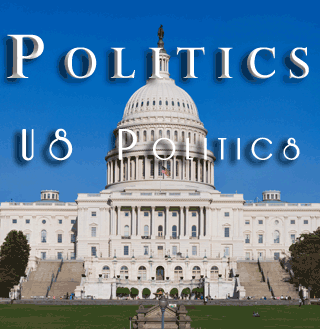Teetering on the Brink of Democracy
America is but one Political Party away from Autocracy
Plato in his "The Republic" (375 BC) long ago pointed out the major problem for democracy. Assuming that the best government is one that is rationally run, good democracies thus depend on intelligent decisions made by a well-educated electorate. Plato concluded that the best form of government is run by a "philosopher king," in other words a single well-educated intelligent autocrat.
Even groups within a well-educated democratic electorate will sometimes disagree, so the path to rational decisions will inevitably hit snags, even gridlock if the legislature is closely divided. An autocratic decision-maker can ignore such snags and act without delays.
America will be facing over the course of the next few years a choice between an autocracy or a democracy. How did we reach this point?
We have only two viable national political parties in the U.S. The Republican Party, controlled by large corporations and a few antidemocratic billionaires, has long been exploring the possibilities of an oligarchy run by its wealthy supporters. Since the election of Donald Trump, the obsession with oligarchy has slipped to an interest in autocracy.
The advantage of an autocracy like Russia and China is that with only one political party, such governments are not plagued by gridlock. The problems may be resolved quickly, effectively, and decisively. But multiparty governments also avoid gridlock with coalitions among several parties, like the nine-party Knesset coalition that recently ousted Benjamin Netanyahu as Israeli prime minister. A two-party government cannot form coalitions.
The major disadvantages of an autocracy are (1) those ruled have no say in how they are ruled, and (2) its tendency to slide into a kleptocracy—government by thieves, like Putin's Russia. While the Republican Party dominated Congress, President Trump tried to convert our democracy into a kleptocracy. Unfortunately for him, the democracy, so far, has held.
Billionaires and major corporations have worked hard to hold the number of political parties in the US at two. So long as we have two parties, we can call ourselves a democracy, but two parties are more easily kept under the thumbs of wealthy political contributors.
When the League of Women Voters decided to bow out of the sponsorship of the presidential debates in 1987, a new, private corporation sprang up to sponsor them: the Commission on Presidential Debates (CPD).
The board of this corporation comprises representatives from 6 corporations, two former senators, one Republican and one Democratic, one university president, and two from independent thinktanks. Corporate representation outnumbers all others together by a margin of 6 to 4. Most of its money comes from corporations, except for the debates themselves which are financed by institutions that host them.
The CPD requires a candidate to have at least 15% support from an average of several polls. In 2014 and 2015, the Green and Libertarian Parties filed two administrative complaints with the Federal Elections Commission, alleging that this provision of the Commission on Presidential Debates (CPD) always favored two candidates, one each from the two major national parties.
Keeping the number of parties down to two also makes it easier to pit one against another. It is more difficult to pit three or four parties against each other. Games like baseball, football, basketball, and others pit one team against another. Boxing and wrestling pit two people against each other. Wars usually are between two countries.
So, we are preconditioned to understand dualities as a conflict between our favorites versus opponents rather than as cooperative endeavors. We have seen an example of that in the Republican demonization of Democrats to make us think that the two parties are at war over the character of our country.
A two-party democracy is only one party away from an autocracy. A four-party government, like Canada's, is three parties and a coalition away from autocracy. Britain has four nationally viable political parties and France, seven, not to mention Israel's thirteen.
America needs more political parties to prevent its teetering on the brink of autocracy in the future.
(Sunbury Daily Item, January 9, 2022)




